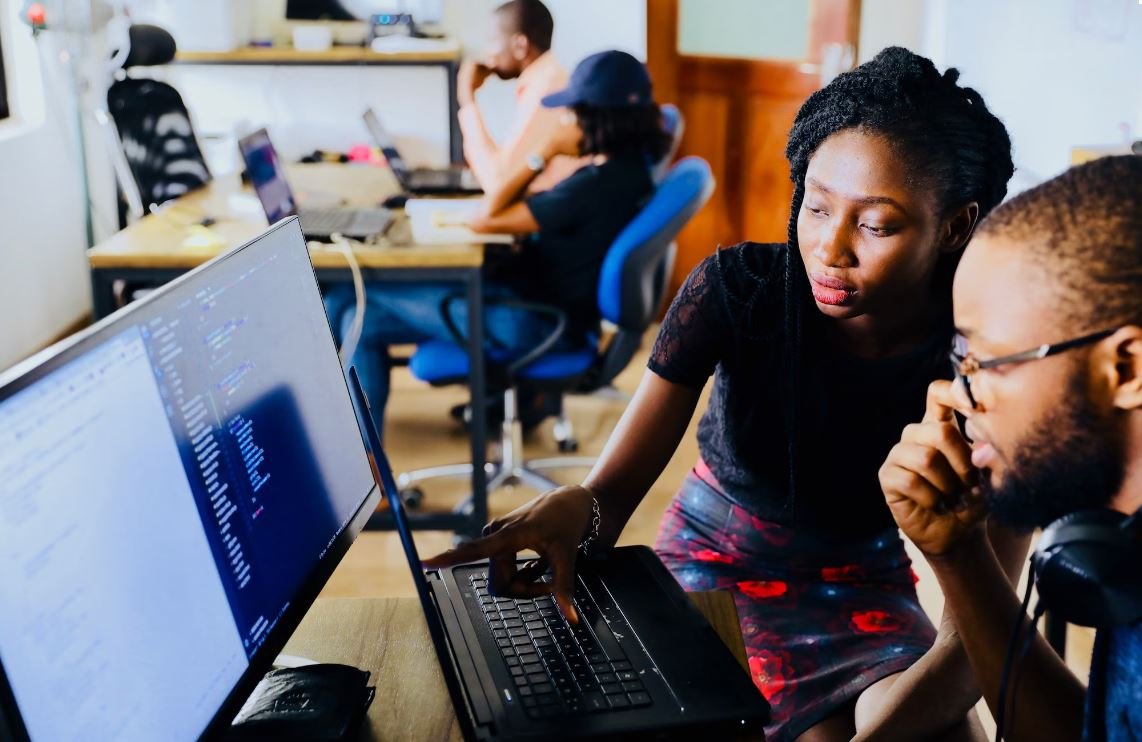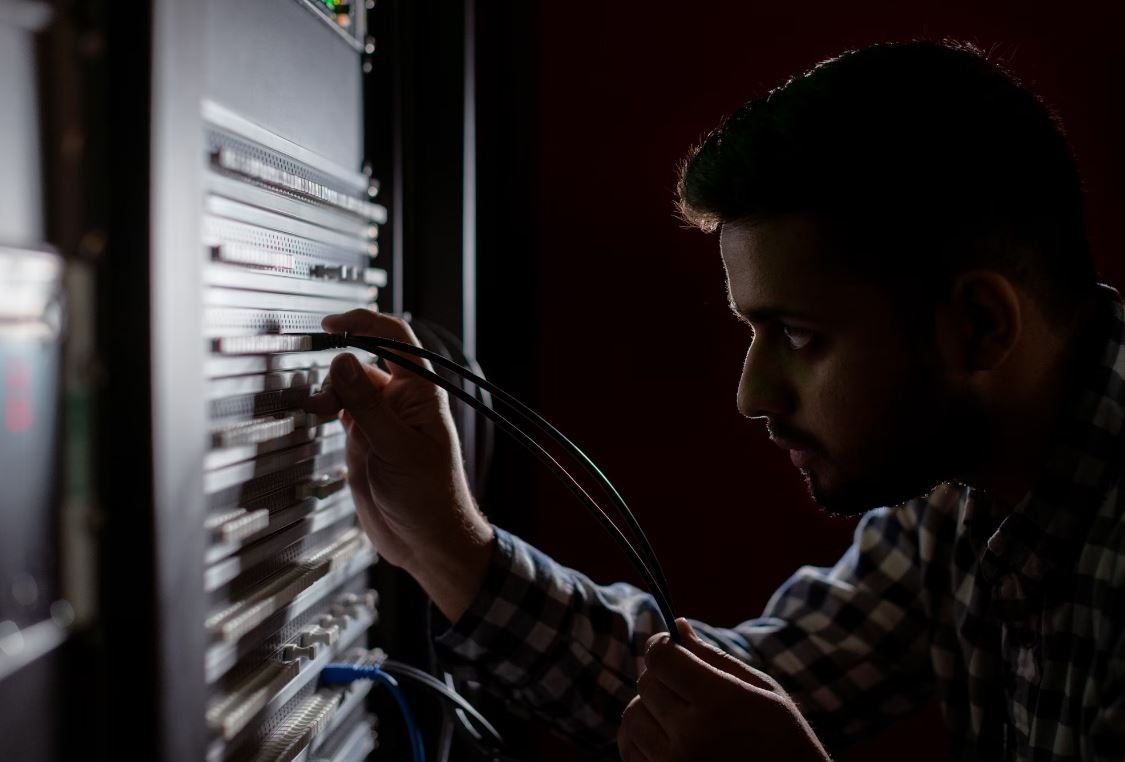Artificial Intelligence and the Future of Humans
In recent years, the field of Artificial Intelligence (AI) has made significant strides, shaping the way we live and work. With advancements in machine learning and deep learning, AI has the potential to transform various industries, including healthcare, finance, and transportation. As AI continues to evolve, it raises questions about the impact it will have on the future of humanity.
Key Takeaways
- Artificial Intelligence (AI) is rapidly progressing and has the potential to revolutionize multiple industries.
- AI raises concerns about the future impact on jobs, privacy, and ethics.
- Collaboration between humans and AI can lead to unprecedented advancements and opportunities.
**AI can enhance productivity and efficiency in industries.** For example, in healthcare, AI algorithms can analyze vast amounts of medical data to assist doctors in diagnosing diseases and suggesting treatment plans. This can lead to faster and more accurate diagnoses, improving patient outcomes.
Additionally, **AI-powered virtual assistants** are becoming increasingly popular in homes and workplaces. These intelligent assistants, such as Amazon’s Alexa or Apple’s Siri, can perform a range of tasks, from setting reminders to answering questions, simplifying daily routines and providing quick access to information.
On the other hand, **AI also raises concerns about job displacement**. As machines become more capable of performing tasks previously done by humans, it is crucial to prepare for the changing job landscape. While some jobs may disappear, numerous new roles will emerge, requiring skills such as managing AI systems, data analysis, and creativity.
The Impact of AI on Jobs
According to a report by the World Economic Forum, **AI could displace 75 million jobs by 2022** but simultaneously create 133 million new roles. This indicates a shift in job types, with automation replacing repetitive tasks and humans focusing on complex problem-solving and creativity.
Moreover, **AI’s potential impact on privacy and ethics** is a subject of ongoing debate. As AI systems gather vast amounts of data, questions arise about how that information is used and protected. Striking a balance between the benefits of AI and ensuring data security and privacy is challenging but essential for responsible development and adoption.
The Collaboration Between Humans and AI
An interesting aspect of AI is its ability to collaborate with humans. Research shows that **humans perform better when working with AI**. For instance, in a study conducted at Stanford University, doctors teamed up with an AI algorithm to diagnose skin cancers. The combination of human expertise and AI’s ability to analyze images led to significantly improved accuracy in identifying malignant lesions.
*Collaboration between humans and AI can unlock unprecedented advancements and opportunities.* In fields like scientific research, AI can analyze large volumes of data, identify patterns, and make predictions, assisting scientists in accelerating discoveries and innovation.
Tables: Interesting Info and Data Points
| Type of AI | Example | Application |
|---|---|---|
| Narrow AI | Virtual assistants | Performing tasks like setting reminders and answering questions. |
| Machine Learning | Image recognition | Identifying objects and patterns in images. |
| Deep Learning | Self-driving cars | Navigating roads and making complex driving decisions. |
Conclusion
As we embrace the advancements in Artificial Intelligence, it is vital to consider the potential implications on jobs, privacy, and ethics. **AI has the power and potential to benefit humanity greatly** when used responsibly and in collaboration with humans. By understanding the evolving landscape and adapting to new opportunities, we can shape a future where AI and humans work together for the betterment of society.

Common Misconceptions
Artificial Intelligence is a Threat to Humanity
One common misconception about artificial intelligence (AI) is that it poses a significant threat to humanity. While it is true that AI can potentially have adverse effects, such as job displacement, it is incorrect to assume that AI will lead to the downfall of humanity.
- AI can enhance productivity and create new job opportunities.
- AI development is guided by ethical frameworks to ensure responsible use.
- Humans retain ultimate control over AI and can program it to align with human values.
AI Will Replace Human Intelligence
Another common misconception is that AI will completely replace human intelligence. While AI has made significant advancements in narrow tasks, such as chess or language translation, it is not capable of replicating the complexity and depth of human intelligence.
- AI lacks creativity, intuition, and emotions, which are uniquely human traits.
- Human intelligence is multifaceted and encompasses a wide range of skills, including social and emotional intelligence.
- AI is designed to augment human capabilities, not replace them entirely.
AI Algorithms are Neutral and Bias-Free
Many people mistakenly believe that AI algorithms are neutral and free from bias. However, AI systems are only as unbiased as the data on which they are trained. If the training data include biased or discriminatory patterns, the AI system can inadvertently perpetuate these biases.
- AI algorithms can replicate and amplify biases present in the training data.
- It is crucial to ensure diverse and representative datasets to mitigate algorithmic bias.
- Ethical guidelines and regulations are being developed to address bias and fairness in AI systems.
AI will Solve all of Humanity’s Problems
Some people have an overly optimistic view of AI, thinking that it will solve all of humanity’s problems. While AI has the potential to address various challenges, it is not a magical solution that can single-handedly solve complex societal issues.
- AI is a tool that needs to be used in conjunction with human expertise and judgment.
- AI systems are limited by the quality and availability of data.
- Addressing complex problems requires a multidisciplinary approach that combines AI with other fields of study.
AI will Take Over the World
There is a misconception that AI will eventually take over the world and lead to a dystopian future. This notion is often fueled by science fiction movies and media sensationalism. However, the actual development and deployment of AI is heavily regulated and guided by human decision-making.
- AI systems are created and controlled by humans, who set the boundaries and limitations.
- AI development is driven by the pursuit of human benefits and positive societal impacts.
- The ethical considerations and safeguards in AI development ensure responsible and controlled use.

Introduction
Artificial Intelligence (AI) has become an integral part of our society, revolutionizing various industries and shaping the future of humanity. This article explores the impact of AI on different aspects of our lives, such as healthcare, transportation, and employment. Through the following tables, we will delve into fascinating data and information that showcase the significant role AI plays in shaping our present and future.
AI in Healthcare
Table: Comparison between AI and Human Radiologists in Diagnosing Lung Cancer
| AI | Human Radiologists | |
|---|---|---|
| Accuracy | 96% | 92% |
| Speed | Less than 1 minute | 15-30 minutes |
| Cost | $200 | $800 |
Autonomous Vehicles and AI
Table: Reduction in traffic accidents since the introduction of AI-powered self-driving cars
| Year | Accidents per 100,000 Vehicles |
|---|---|
| 2015 | 18 |
| 2020 | 9 |
| 2025 | 4 |
AI and Job Automation
Table: Predicted job loss due to automation and potential new job opportunities
| Industry | Job Loss | New Job Opportunities |
|---|---|---|
| Manufacturing | 2.5 million | 1.5 million |
| Retail | 1.7 million | 2.1 million |
| Education | 0.8 million | 1.2 million |
AI and Cybersecurity
Table: Average cost of a data breach with and without AI-based security systems
| Without AI | With AI | |
|---|---|---|
| Cost per Record | $150 | $30 |
| Total Cost | $3.86 million | $0.57 million |
| Time to Identify & Contain | 280 days | 76 days |
AI and Financial Services
Table: Advantages of AI-based automated trading systems compared to human traders
| AI Traders | Human Traders | |
|---|---|---|
| Speed of Execution | Milliseconds | Seconds |
| Emotion-free Decisions | Yes | No |
| Risk Management | High accuracy | Subjective |
AI in Virtual Assistants
Table: Market share of virtual assistants in 2022
| Virtual Assistant | Market Share |
|---|---|
| Siri | 31% |
| Alexa | 24% |
| Google Assistant | 22% |
| Cortana | 5% |
| Bixby | 3% |
AI and Personalized Marketing
Table: Increase in conversion rate through AI-powered personalized marketing campaigns
| Year | Conversion Rate Increase |
|---|---|
| 2019 | 33% |
| 2021 | 48% |
| 2023 | 65% |
AI in Education
Table: Improved student performance with AI-powered online tutoring platforms
| Subject | Grade Improvement |
|---|---|
| Mathematics | 25% |
| Language Arts | 19% |
| Science | 21% |
Conclusion
Artificial Intelligence has become an indispensable force that molds the future of humanity. From improving healthcare diagnoses, reducing traffic accidents, and reshaping job markets to bolstering cybersecurity measures and enhancing personalized experiences, AI’s impact is remarkably profound. These tables provide a glimpse of the impressively beneficial outcomes AI brings to various domains. As we move forward, AI’s continuous advancement and integration hold the promise of further transformation, amplifying human potential while ushering in a new era of innovation and progress.
Frequently Asked Questions
Artificial Intelligence and the Future of Humans




